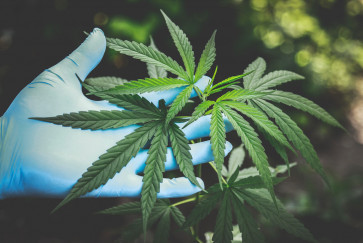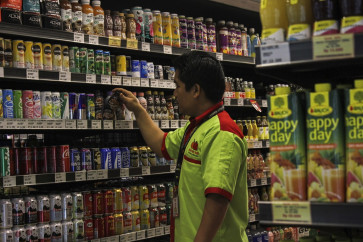AlbumREVIEWS: 'Los Skut Leboys' by Sore
When interviewed about a year ago, Sore seemed happy â the thought of doing a show was no longer sickening, tensions had largely been diffused and disbanding the band was not a foreseeable threat
Change text size
Gift Premium Articles
to Anyone

When interviewed about a year ago, Sore seemed happy ' the thought of doing a show was no longer sickening, tensions had largely been diffused and disbanding the band was not a foreseeable threat.
Never forget that Sore's best music ' 2005's Centralismo (with its numerous accolades, or as Ade Paloh, one of Sore's founding fathers, would have it: poison) and 2008's Ports of Lima ' was made in times that were much different from now.
Sore's arrangements were knotty in a way that they challenged the conventions of pop music by, say, working a legendary Erik Satie piece into a song. Sore's ambitious music justifies, or at least makes sense of, the stressful process of making it. After several years that saw a member and primary composer Mondo Gascaro leaving and the whole band going on a hiatus, they would not have this anymore.
When you hear Los Skut Leboys, Sore's first album of new music in seven years, you'll find it sounds a lot more laid back, a lot less worried about missing out on encyclopedic musical references that could work with pop music.
Sore is no longer standing in the same light they cast years ago. Rebirth is a strong word, but I can't find any other one that fits. The new album is a decent one that never sounds like it jettisons quality in favor of a good night's sleep.
It's easy to think that Los Skut Leboys is the lesser of Sore's canon. It's not wrong to think so, but nonetheless it holds an important value none of the two previous albums has. You can hear them all over in this record. For instance, 'Fiksinesia', a duet with singer Ajie Gergaji from Themilo, begins with an acoustic guitar before it cascades into a beautiful, shoegaze-leaning song and '8' is classic MOR guitar pop.
Leboys also continues Sore's trend at egalitarian songwriting, lending the album its diverse sounds. It is a pop record, but like Centralismo and Ports of Lima, it's only kind of. One big difference is the record lacks sing-along songs, like the old 'Somos Libres' or 'No Fruits for Today'. 'Al Dusalima', a duet with singer Aimee Saras, is a beautiful string-drenched ballad, but I could say the same thing for mostly the same reasons about 'Belajar Untuk Riang' (Learning to be Happy). They're far from bad songs but Sore is at their best when they get really, really grim like the somber 'Plastik Kita' (Our plastic).
One reason why the new album hasn't truly left Centralismo's signature jazz-inflected songs is because of songs like 'Pop Drama' and the Americana-indebted 'There Goes'. Los Skut Leboys is breezy, but that's not its best strength.
That prize would have to go to the lyrics. Some songs like 'Gesneriana' (named after Ade's daughter who was born last year) and 'R14' (a tribute to friend Ria Irawan who's currently battling cancer) are very poetic and heartfelt.
They can be narrative, like 'Map Biru' or 'Belajar Untuk Riang', but they can also be spiritual like the inward-looking '8' and 'Al Dusalima'.
Well, there you go. I took their word when they said they're a lot happier now because Los Skut Leboys is proof. It's not as musically challenging but the album is an important record because it gets them out of the comfort zone.









